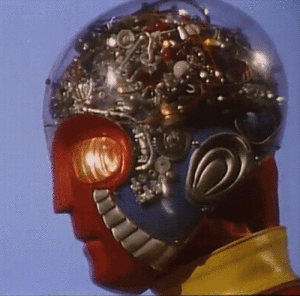 January second is apparently “National Science Fiction Day” and to mark that moment, let me share a little personal history with you. My mother, now 73, was the one who first exposed me to science fiction through her large paperback book collection and television habits in the late 1960s. Granted it was the 1960s and it was San Francisco so, how could I not be exposed to science fiction? But she was my most personal example of it.
January second is apparently “National Science Fiction Day” and to mark that moment, let me share a little personal history with you. My mother, now 73, was the one who first exposed me to science fiction through her large paperback book collection and television habits in the late 1960s. Granted it was the 1960s and it was San Francisco so, how could I not be exposed to science fiction? But she was my most personal example of it.
But a love for science fiction can do something to a person, something I’ve decided to call “now fatigue.” Now fatigue is the opposite of Toffler’s future shock. The future shocked are people anxious over too much change too soon, the now fatigued are people who are disappointed that social and technical progress isn’t happening fast enough. Every time someone says, “We can put people on the Moon but we still can’t cure cancer,” that’s now fatigue. Whenever someone says, “It’s 2016, where’s my flying car?” that’s now fatigue.
I have experienced decades worth of now fatigue.
- I read Engines of Creation back in 1988 and it’s 2016 and the progress in mechanosynthesis that Feynman and Drexler hoped for is glacially slow.
- Niven’s Known Space promised medical treatments that could extend youth and vitality into multiple centuries and a cure for aging seems as distant as ever.
- It was 40 years, after Malcolm X was shot, before we had an African American president and racism still rears its ugly head, time, time, time and time again.
- In grade school, I was promised full metric conversion in the United States by the 1980s and yet one of the first acts of the Reagan Administration, aside from tearing down Carter’s solar panels on the White House, was to close the United States Metric Board.
- After Fukushima, and despite significant advances in the technology, people are still just frightened of nuclear energy as they were after the China Syndrome.
- I read Seidensticker and mostly agree with him, the rapture of the nerds is a pipe dream.
- People hoping for mind uploading or gradual replacement of dying neurons with synthetic ones may find reasons why their intuition may be leading them astray and reasons why progress will be slow.
- The propaganda reasons for the space race ended with the Apollo-Soyuz mission and with NASA’s budget being hugely scaled back.
I could go on and on. Yes, there are advances, here and there but, progress just seems so agonizingly, teeth pullingly, slow! What I have is now fatigue. As a child of the utopian world of Star Trek, I’ll continue to read hard SF and love it, as an ex-physics major I will continue to read breathless reviews of technical advances in scientific media but, I don’t expect radical changes in the next thirty (forty if I’m lucky.) years that I have left to me. There will be no hard takeoff like Kurzweil promises.
Believe me, I would love to be proved wrong on this.
